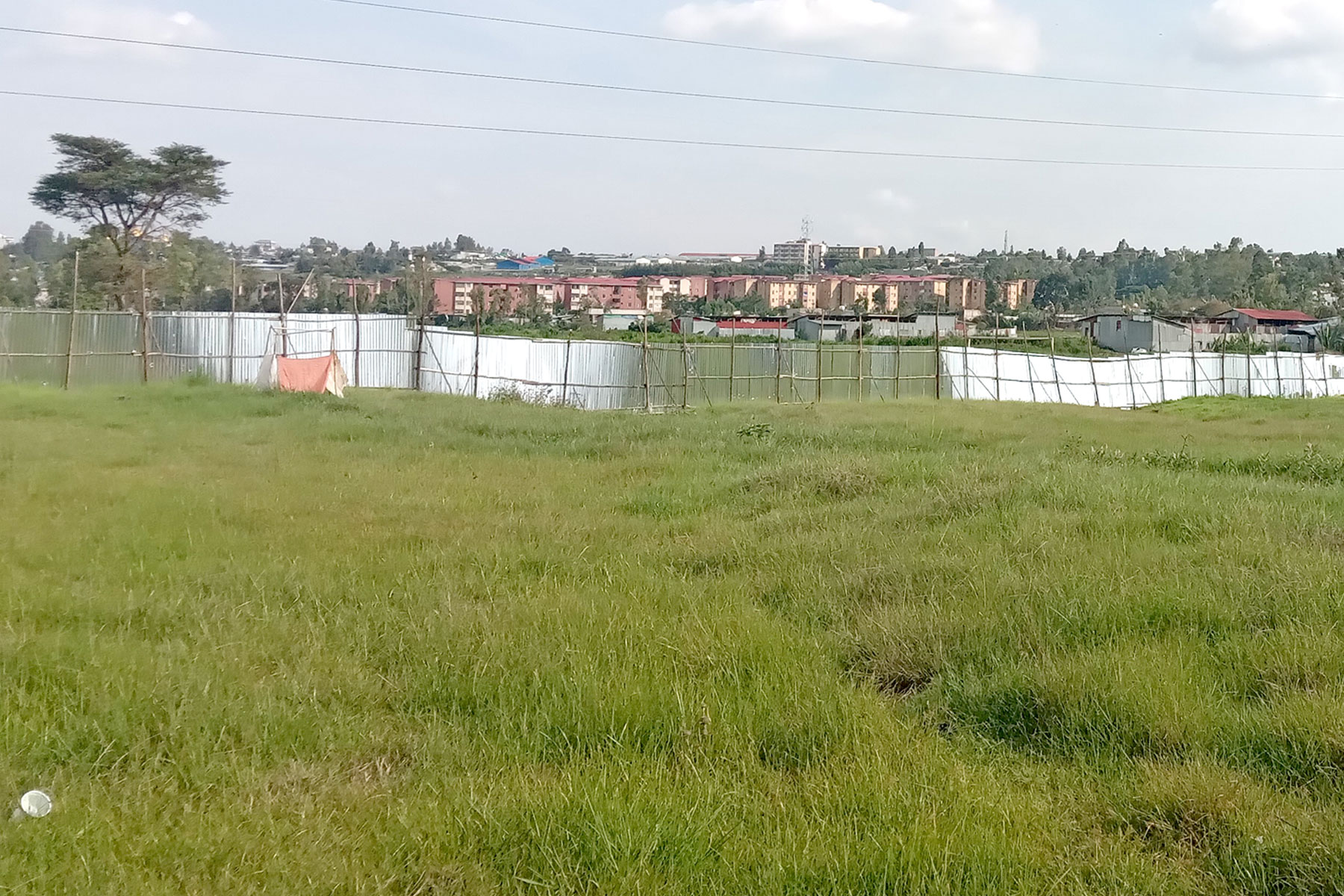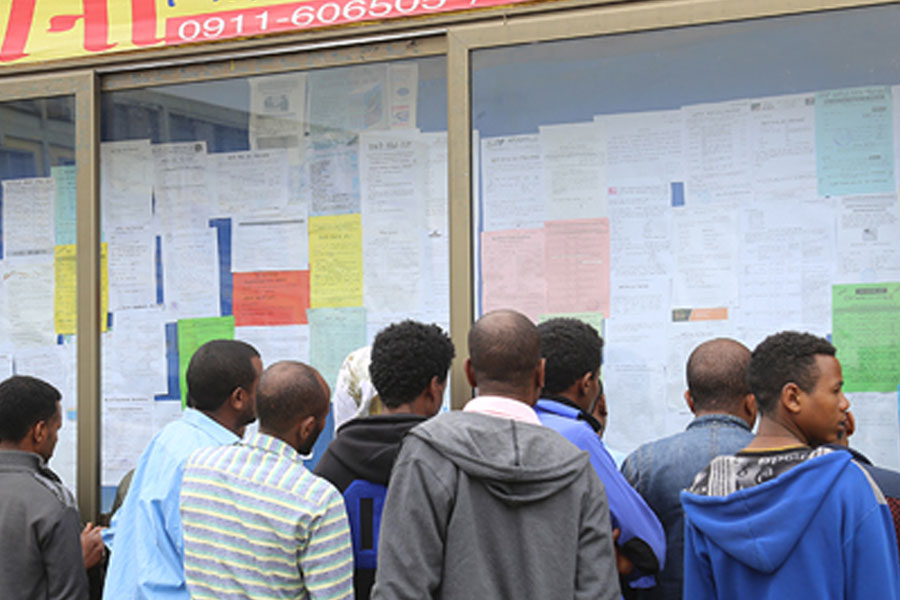
Mar 28 , 2020.
In September 2005, the World Bank commissioned a futuristic study to see the loss in human life and cost to the global economy should there be a global outbreak of a virus. The finding was too terrifying to contemplate. Tens of millions could die across the world, and a loss of up to 800 billion dollars could occur in the global economy.
Whether or not the current global pandemic from a virus was what the researchers had in mind when foreseeing the future is yet to be seen. Nonetheless, few could have predicted how the saying, “When China sneezes, the whole world catches a cold,” would take on a literal meaning.
An outbreak of respiratory illness first reported in a Chinese province barely known to the rest of the world went on to not only be contracted by hundreds of thousands across the globe but bring to a standstill the world’s economy. It is a testament to the profoundly globalised state of the world.
The Novel Coronavirus Disease 2019 (CoViD-19) pandemic has impacted the social and personal lives of billions of people around the world. All but four of the 195 countries have reported the presence of individuals with the virus. It has effectively led to three billion people around the world being told to stay home. Many countries are under lockdown, having closed their borders and instituted travel restrictions. Ironically, China, where the virus initially originated, closed its borders for fear of imported cases, while the United States has taken the lead last week with the highest number of people with a confirmed case of the virus. The numbers are running high in most terrifying speed.
A projection made in 1999 by the Centers for Disease Control & Prevention had warned such a pandemic could lead to loss in human life reaching over 200,000 people. It would also cost the US economy close to 200 billion dollars, representing 1.5pc of its GDP at the time.
It comes from factories, shops and offices - any business institution deemed unessential to the provision of essential goods and services - being shut down en masse, not only in the US but everywhere. A world economic order founded upon cross-border production, distribution and consumption of goods and services suddenly finds itself confronted with its greatest challenges. No economic stimulus plan, country-specific or international, would be entirely capable of accounting for the significant gap that will be created as a result of the fall in productivity.
It is an obstacle likely to bruise the economies of even the wealthiest nations in the world.
Global growth could plummet by half to 1.5pc, the Organisation for Economic Cooperation & Development (OECD) warned. Japan, Europe and the United States have all been predicted to fall into recession if the current economic lockdown persists for months.
For countries such as Ethiopia, lacking the fiscal space, experience or even economic structure to deal with a global recession systematically, the consequence will be unprecedented. Thirty million jobs in the private sector stand to be lost as a result of the economic consequences of the spread of the virus in Africa, according to Vera Songwe, executive director of the Economic Commission for Africa (ECA).
The effect due to countries around the world trying to contain the spread of the virus, including Ethiopia, are evident already.
Products such as preventive medical equipment have sky-rocketed beginning on the first day the presence of a person confirmed with the virus was reported in the country. The widespread belief that food items such as garlic, lemon, honey and ginger are effective in fighting the infection has also led to a severe escalation of retail prices. It is only a matter of time before consumers feel the inflationary pressure in the economy.
Much more worrying has been the impact on industries and sectors that depend on cross-border trade. Over the past months, before a single case was reported in Ethiopia, there had already been disruptions to the activities of local businesses. These were mainly manufacturers and importers that relied on goods and skills brought in from Asian and European markets.
This was when Corornavirus cases around the world were at one-fifth of the reported cases late last week and China was still the epicentre of the infection. Panic and speculation had created disruptions in the global supply chain. Restrictions and delays on the shipping of goods and travel of people severely impacted it, leading to local businesses relying on imports being unable to meet demand.
Even before reaching Ethiopia, the virus had become a burden on the economy at least in the form of speculative prices.
If it was import-dependent businesses that primarily felt the economic whirlwind that was to come, it is small businesses that are sacrificed in the effort to contain the spread. Almost a week after the first case was confirmed, bars and nightclubs were shut down, threatening the livelihoods of people employed in such establishments. Ethiopia remains in partial quarantine, allowing people to move around with open public transport and markets. Certainly, this will do little to contain the virus completely, as history demonstrates.
This is not to mention the severe consequences to the already teetering brewery industry. Battered by a ban on commercial ads in the broadcasting media, a new punitive excise tax, and now the closure of bars and restaurants, the livelihoods of 88,000 people - malt farmers and employees of beer companies - have been put on the line.
The impact on the external sector will be worse still. It is already threatening to wipe out the nation’s meagre foreign currency reserves. One of the earliest victims has been the horticultural industry, incurring 11 million dollars in losses in just two weeks. Due to an almost complete drop in demand in European and Middle Eastern markets, it finds itself on the edge of an abyss. It is an industry that generated 300 million dollars in the last fiscal year, making up for over a tenth of the entire export receipts, and employs 150,000 people.
These are problems that have already become evident. As economic lockdown across the world continues, an unanticipated drastic fall in private transfers (remittance) and the export of services and goods will become more apparent. Revenues from tourism will almost certainly decrease, eliminating a chunk out of the hundreds of millions of dollars it contributes to the nation’s foreign currency reserves. The fall in commodity market prices, which fare terribly during global economic slowdowns, will eat into the already stagnant export revenues of the country.
Ethiopia is set for dark times ahead.
The only good news on the horizon is the fractional respite a falling global price of crude oil will provide.
There is some assurance to be found in the recognition given to the economic consequences of the spread of the virus by Prime Minister Abiy Ahmed’s (PhD) administration. Most of the action has until this point been on asking developed countries and multilateral institutions for economic assistance, including bailouts for private players suffering from value chain disruptions, as well as debt cancellation or at least restructuring. The latter, if the administration succeeds in its lobbying, can mean the lessening of a burden for a country with over a billion dollars to service in principal and interest payments, annually.
Beyond making a concerted effort to articulate the need for developed nations to assist developing ones economically, there are interventions his administration can undertake to stimulate the economy and safeguard the vulnerable members of the population. Society will certainly overcome this challenge; it is individuals whose lives will remain shattered - forever.
One remedy may be to loosen regulations around terms of establishment. This way, businesses can adapt to transforming market demands. Protective medical gear, systems for non-cash transfer of money, home delivery of goods and digital communications have all gained importance that is barely being met by those currently providing them. Allowing flexibility for businesses, individuals and manufacturers by loosening regulations to participate in the supply side of this will not only help meet demand. It will absorb those who will soon lose their jobs.
However, the essential element here is to understand the pandemic is short-term, thus formulate fiscal measures in the administration's response. This should be the appropriate time for the Prime Minister to take his case to parliament and win their concession to get a piece of legislation that empowers him with broader manoeuvring ability on the fiscal front. It should be alright at this time to run sizable fiscal deficits than the norm, either through the loss of domestic revenues in taxes or paying for comprehensive social protection programmes.
Indeed, the likelihood of an economic slowdown looms very large for Ethiopia. But it is possible still to cushion the impact. Help may come from developed countries and multilateral institutions later, but the administration will need to be imaginative in its handling of what is perhaps the most significant challenge since 1918.
PUBLISHED ON
Mar 28,2020 [ VOL
20 , NO
1039]

Fortune News | Nov 03,2024


Commentaries | May 02,2020

Fortune News | Jan 16,2021

Agenda | Jul 11,2021

Editorial | Jul 10,2021

Sunday with Eden | Sep 17,2022

Viewpoints | May 25,2019

View From Arada | Apr 02,2022

Radar | Feb 27,2021

Photo Gallery | 179007 Views | May 06,2019

Photo Gallery | 169203 Views | Apr 26,2019

Photo Gallery | 160080 Views | Oct 06,2021

My Opinion | 137136 Views | Aug 14,2021

Dec 22 , 2024 . By TIZITA SHEWAFERAW
Charged with transforming colossal state-owned enterprises into modern and competitiv...

Aug 18 , 2024 . By AKSAH ITALO
Although predictable Yonas Zerihun's job in the ride-hailing service is not immune to...

Jul 28 , 2024 . By TIZITA SHEWAFERAW
Unhabitual, perhaps too many, Samuel Gebreyohannes, 38, used to occasionally enjoy a couple of beers at breakfast. However, he recently swit...

Jul 13 , 2024 . By AKSAH ITALO
Investors who rely on tractors, trucks, and field vehicles for commuting, transporting commodities, and f...

Oct 25 , 2025 . By YITBAREK GETACHEW
Officials of the Addis Abeba's Education Bureau have embarked on an ambitious experim...

Oct 26 , 2025 . By YITBAREK GETACHEW
The federal government is making a landmark shift in its investment incentive regime...

Oct 29 , 2025 . By NAHOM AYELE
The National Bank of Ethiopia (NBE) is preparing to issue a directive that will funda...

Oct 26 , 2025 . By SURAFEL MULUGETA
A community of booksellers shadowing the Ethiopian National Theatre has been jolted b...